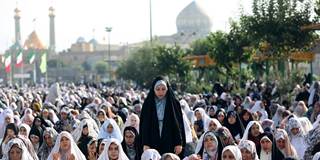Today’s turmoil in the Middle East is rooted largely in historical legacies and poor leadership, but the influence of religion hasn’t helped. So it is good news that, from Saudi Arabia to Israel to Iraq, religion is increasingly being superseded by strategic and security interests in shaping regional affairs.
TEL AVIV – When one thinks of conflict in the Middle East, religious factors are probably among the first that come to mind. But, nowadays, competing strategic interests and imperial ambitions play a much larger role than religious or sectarian cleavages in defining regional politics. This is potentially a positive development.
Consider the struggle for regional influence between Saudi Arabia and Iran. Despite having long been viewed as a result of the Sunni-Shia divide, the competition is really between two opposing political systems: Iran’s revolutionary regime, bent on changing the regional balance of power, versus Saudi Arabia’s conservative monarchy, which seeks to uphold the old regional order.
In this context, Iran’s support of the Arab Spring uprisings makes sense. In an Arab-dominated Middle East, non-Arab Iran is the natural enemy; but in a Muslim Middle East, the Islamic republic of Iran is a potential hegemon. So Iran was quick to back free elections, predicting that voters would bring Islamists to power.

TEL AVIV – When one thinks of conflict in the Middle East, religious factors are probably among the first that come to mind. But, nowadays, competing strategic interests and imperial ambitions play a much larger role than religious or sectarian cleavages in defining regional politics. This is potentially a positive development.
Consider the struggle for regional influence between Saudi Arabia and Iran. Despite having long been viewed as a result of the Sunni-Shia divide, the competition is really between two opposing political systems: Iran’s revolutionary regime, bent on changing the regional balance of power, versus Saudi Arabia’s conservative monarchy, which seeks to uphold the old regional order.
In this context, Iran’s support of the Arab Spring uprisings makes sense. In an Arab-dominated Middle East, non-Arab Iran is the natural enemy; but in a Muslim Middle East, the Islamic republic of Iran is a potential hegemon. So Iran was quick to back free elections, predicting that voters would bring Islamists to power.